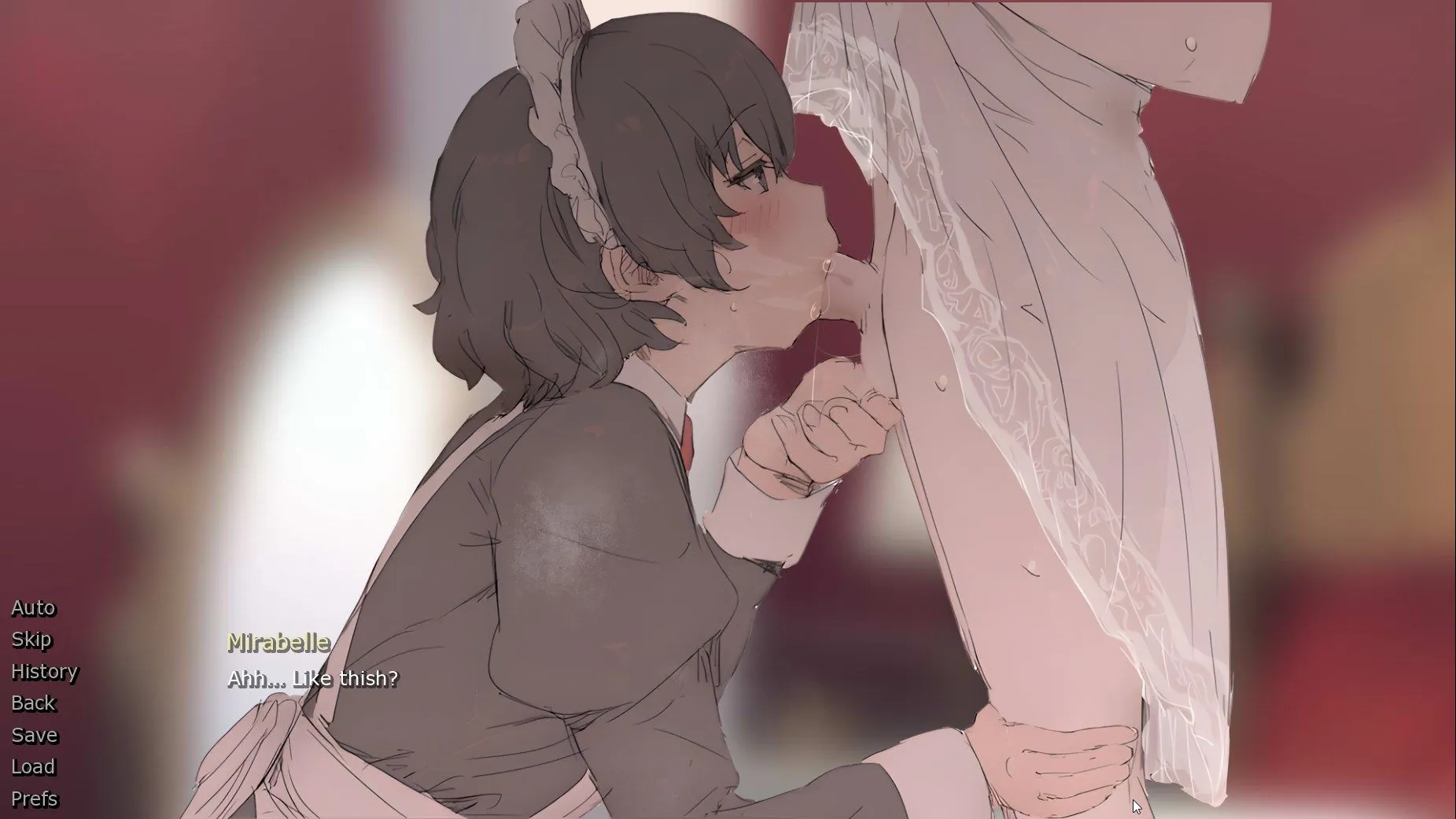
Free Pass: Season 1
Play Free Pass: Season 1
Free Pass: Season 1 review
Explore the immersive world of Free Pass: Season 1, where choices shape a married woman’s journey
Free Pass: Season 1 invites players into the life of Yoon Ni Ko, a married woman raised in a strict cultural background who faces a pivotal moment: the temptation to step outside her marriage after years of faithfulness. This visual novel blends emotional storytelling with player-driven choices, exploring themes of desire, loyalty, and personal transformation. Whether you’re curious about the narrative, gameplay mechanics, or character development, this guide covers everything you need to know about Free Pass: Season 1—without spoiling the surprises that await.
Story and Setting: What Makes Free Pass: Season 1 Unique?
Let’s be honest – most visual novels follow a predictable path. You make a few choices, get a cute ending, and move on. But what if a game dared to ask a more difficult, more human question? What if you were handed a single, life-altering opportunity to step outside the boundaries of your life, just for a little while?
That’s the powerful premise at the heart of Free Pass: Season 1. This isn’t just another dating sim; it’s a deep, psychological exploration of a woman at a crossroads, and the player choices consequences are nothing short of transformative. If you’re tired of shallow stories and want a narrative that truly resonates, you’ve come to the right place. Let’s pull back the curtain on what makes this married woman visual novel so unforgettable. 🎭
A Tale of Temptation and Transformation
So, what happens in Free Pass: Season 1? You step into the shoes of Yoon Ni Ko, a woman who has built a life that looks perfect from the outside. She has a stable marriage, a comfortable home, and all the trappings of success. But inside, she’s wrestling with a quiet, growing sense of emptiness. The routine has become a cage, and the spark that once defined her feels like it’s flickering out.
The inciting incident is a “free pass”—a temporary, negotiated permission from her husband to explore connections outside their marriage. This isn’t presented as a salacious thrill; it’s a Pandora’s Box of emotional and ethical dilemmas. The Free Pass: Season 1 story is built on this foundation of internal conflict. Is this an act of self-discovery or self-destruction? A chance to reclaim a lost part of herself, or a betrayal of the life she’s built?
I remember my first playthrough. I thought I’d be cool and calculated, treating it like a game. But the writing is so effective that I quickly found myself agonizing over simple dialogue options. It stopped being a “game” and started feeling like I was holding someone’s fragile reality in my hands. The emotional storytelling in games rarely hits this hard.
The narration reads: “I look at my husband, his face so familiar it’s like my own. He trusts me. And in this moment, that trust feels heavier than any secret I could keep.”
This single line captures the entire central conflict. It’s not about the action itself; it’s about the weight of the decision, the erosion of trust, and the haunting question of what it means to be truly known by another person. The Yoon Ni Ko character is a masterclass in writing a relatable, flawed, and deeply human protagonist. You don’t just observe her journey; you feel every moment of her doubt, her desire, and her despair. 💔
Cultural Context and Character Depth
What truly elevates Free Pass: Season 1 above its peers is its rich and authentic cultural background in adult games. This isn’t a story that could be set anywhere. The societal expectations, the unspoken rules of marriage, and the pressure to maintain harmony are woven into the very fabric of the narrative.
Yoon Ni Ko isn’t just a woman; she’s a woman navigating a specific cultural landscape where duty and personal desire are often at odds. Her background, her family’s expectations, and the way she was raised to perceive her role as a wife all contribute to the immense pressure she feels. This context makes her dilemma infinitely more complex and relatable for a global audience that understands these universal, yet culturally-specific, tensions.
The supporting cast is equally nuanced. They aren’t just potential romantic interests; they represent different paths, philosophies, and futures. One might symbolize reckless freedom, while another offers a more gentle, understanding connection. Each interaction forces you to reflect on what Yoon Ni Ko truly needs, not just what she momentarily wants.
Here’s a look at how the cultural setting influences key characters:
| Character | Role in the Story | Connection to Cultural Themes |
|---|---|---|
| Yoon Ni Ko | The Protagonist | Embodies the conflict between traditional wifely duties and modern self-fulfillment. |
| The Husband | The Anchor | Represents stability, tradition, and the life she ‘should’ want, creating the central moral dilemma. |
| The Free Spirit | The Temptation | Offers a vision of life unburdened by societal expectations, challenging her worldview. |
This attention to detail in the cultural background in adult games provides a layer of realism that is often missing from the genre. It grounds the fantastical premise in a reality that feels tangible and urgent. 🌍
How Choices Drive the Narrative
If you think your decisions in most games don’t matter, Free Pass: Season 1 will be a wake-up call. This is a world where every single choice, no matter how small it seems, ripples through the entire narrative. The player choices consequences are profound, permanently altering relationships and locking you out of entire story branches.
The game brilliantly avoids a simple “good vs. bad” morality system. Instead, your choices reflect different values: security vs. freedom, honesty vs. protection, passion vs. commitment. There is no “perfect” ending, only the ending that feels most true to the path you’ve carved for Yoon Ni Ko.
Let me give you a concrete example of how this works. 🤔
Example: The Café Conversation
Early on, Yoon Ni Ko meets a charming stranger at a café. The conversation is light and flirty. The game presents you with a seemingly innocuous choice when he asks about your life:
- Option A: Be vague and change the subject. (“I’d rather hear about you.”)
- Option B: Open up about feeling a little stuck. (“Sometimes life feels like a script I didn’t write.”)
If you choose Option A, the encounter remains a pleasant, forgettable moment. You return home, and the story continues with your marriage largely unchanged.
However, if you choose Option B, you open a door. This single moment of vulnerability leads to a deeper connection. You’ll receive a text from him later, which you can choose to ignore or respond to. If you respond, it leads to another meeting, which then presents more significant choices about physical and emotional intimacy. This one dialogue option can ultimately lead to a branching path where Yoon Ni Ko must decide whether to fully embrace this new relationship, causing a dramatic confrontation with her husband and a potential complete upheaval of her life.
The Free Pass: Season 1 story is built from hundreds of these micro-decisions. This is the core of its genius. You’re not just picking from a list of endings at the finale; you are writing the story sentence by sentence, with every interaction. The emotional storytelling in games is directly tied to this agency. You aren’t just watching Yoon Ni Ko make tough choices; you are the one making them, and you are forced to live with the outcome. The replay value is enormous, as you’ll constantly wonder, “What if I had said something else?” 🔀
Ultimately, what happens in Free Pass: Season 1 is a story that stays with you long after you’ve put it down. It challenges you, makes you uncomfortable, and asks you to look at the complexities of human relationships without judgment. The Yoon Ni Ko character becomes a part of your own emotional landscape, and the player choices consequences ensure that your experience is uniquely, powerfully yours. This is more than a game; it’s a poignant exploration of the paths we take and the ones we leave behind.
Free Pass: Season 1 stands out as a thoughtful, choice-driven visual novel that explores the complexities of desire, loyalty, and personal growth. With its rich character development, immersive storytelling, and multiple endings, the game offers a deeply engaging experience for players who enjoy narrative depth and meaningful decisions. Whether you’re drawn to the emotional journey of Yoon Ni Ko or the challenge of uncovering every hidden path, Free Pass: Season 1 rewards curiosity and replayability. Dive in, make your choices, and discover where the story takes you—every playthrough is a chance to see life through a new lens.






















